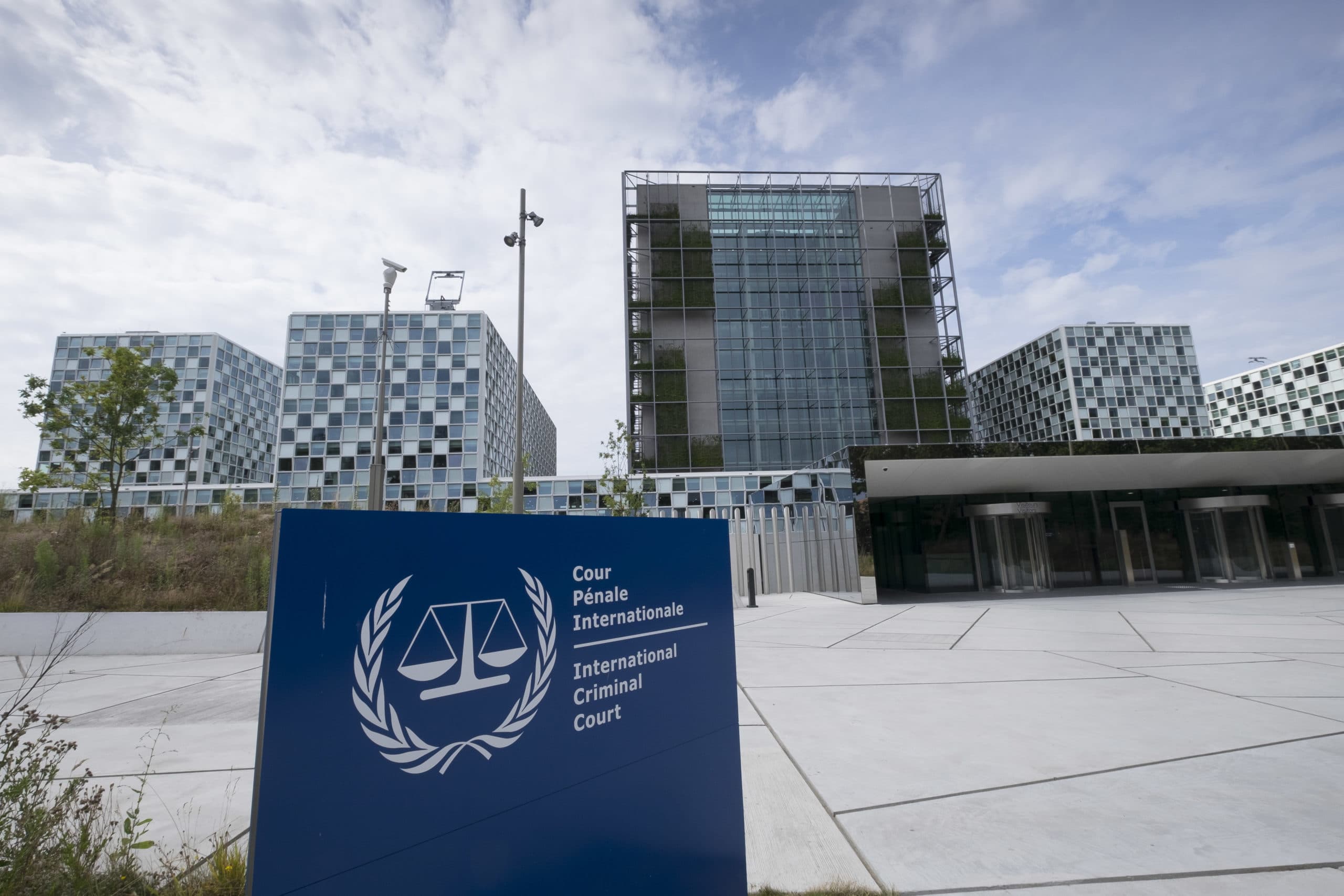January 14, 2021 | From Trump to Biden Monograph
International Law
January 14, 2021 | From Trump to Biden Monograph
International Law
Current Policy
The Trump administration took a skeptical approach to international law, which it saw as infringing U.S. sovereignty and restricting America’s freedom of action. As President Trump told the UN General Assembly in 2018, “We will never surrender America’s sovereignty to an unelected, unaccountable, global bureaucracy. America is governed by Americans.”1
The administration’s skepticism of the current international legal system was not completely unfounded. Some aspects of the system are deeply flawed, and several international organizations are being increasingly subverted by the People’s Republic of China (PRC) and other authoritarian regimes. But the administration did not, overall, improve the situation.
One way the administration’s skepticism manifested itself was in threatened and actual withdrawals from several international agreements. Withdrawal from international agreements typically does not violate international law; withdrawal is almost always permissible. However, nations are typically hesitant to withdraw, especially from legally binding agreements, as withdrawals may be perceived by other parties as an indication of unreliability.
Legally binding agreements from which the administration withdrew included the U.S.-Russia Intermediate-Range Nuclear Forces Treaty (on the grounds Russia was “in material breach”),2 the Open Skies Treaty (in response to “Russia’s repeated violations”),3 the U.S.-Iran Treaty of Amity, Economic Relations, and Consular Rights (in response to Iran’s use of it to sue America at the International Court of Justice [ICJ]),4 and the Optional Protocol to the 1961 Vienna Convention on Diplomatic Relations (in response to another lawsuit against America at the ICJ).5
Trump also withdrew from the non-binding 2015 nuclear deal with Iran, citing insufficient “limits on the regime’s nuclear activity – and no limits at all on its other malign behavior.”6 The administration also exited the largely non-binding Paris Climate Accord, calling it “an agreement that disadvantages the United States to the exclusive benefit of other countries.”7
The Trump administration also withdrew from several international organizations. Some did not include significant legally binding obligations, such as the UN Educational Scientific and Cultural Organization (the U.S. withdrawal announcement cited “continuing anti-Israel bias”)8 and the UN Human Rights Council (the administration similarly cited the organization’s “bias against Israel”).9 By contrast, the World Health Organization (WHO) – the United States withdrew after citing the WHO’s subservience to the PRC – did involve legally binding obligations.10
Trump also threatened to withdraw, but did not withdraw, from the North American Free Trade Agreement (NAFTA),11 the World Trade Organization,12 the U.S.-Korea Free Trade Agreement,13 NATO,14 and the Universal Postal Union.15 These threats were apparently intended to spur renegotiation of the agreements’ provisions or implementation.
The Trump administration also attacked the International Criminal Court (ICC). The ICC was created as a court of last resort for prosecution of the most serious international crimes, in cases where countries were unable or unwilling to investigate themselves.16 However, the ICC prosecutor chose to pursue politicized investigations of the United States and Israel, two non-members of the ICC, for alleged war crimes both countries thoroughly examined.

Exterior view of the International Criminal Court building in The Hague on July 30, 2016. (Photo by Michel Porro/Getty Images)
In challenging the ICC, the Trump administration was hardly breaking new ground. The ICC investigations were rejected as illegitimate by former Obama administration officials in charge of ICC and detainee issues and by over 330 members of Congress from both parties.17
But Trump took the unprecedented step of responding to the investigations by imposing sanctions on two senior ICC officials.18 Seventy-two ICC member states, including most of America’s closest allies, condemned the U.S. move and rallied around the ICC.19
The Trump administration was repeatedly confronted with the PRC’s effective use of lawfare (law as a weapon of war) in the maritime, aviation, space, cyber, international organization, and nonproliferation domains. For example, the PRC used purportedly private actors to supply Iran’s nuclear program while Beijing claimed to abide by its international legal commitments regarding nuclear proliferation.20 The Trump administration did more to publicize PRC lawfare than did its predecessor.21 But it failed to devise a clear strategy for countering PRC lawfare.22
Assessment
Trump’s pronounced skepticism toward international law provoked criticism even from conservatives. Jack Goldsmith, a leading conservative scholar of international law and senior appointee in the George W. Bush administration, denounced “the greatest presidential onslaught on international law and international institutions in American history.”23 According to John Bellinger, who served as the State Department legal adviser during the George W. Bush administration, Trump “seemed to delight, both as a candidate and as president, in ignoring and even ridiculing international law.”24
Yet Trump’s rhetoric tended to be more unprecedented than his actions. For example, he was accused of violating the law of armed conflict with April 2017 and April 2018 cruise missile strikes on Syria and the January 2020 targeted killing of Qassem Soleimani, commander of Iran’s Quds Force.25 But these actions were strikingly similar to those of the Obama administration, which undertook 540 targeted drone strikes, killing an estimated 3,473 terrorists and 324 civilians.26 These operations were generally not as heavily criticized.
In addition, Trump’s threats to withdraw from the U.S.-Korea Free Trade Agreement, NAFTA, and the Universal Postal Union resulted in renegotiated deals that were at least arguably more favorable to the United States.27
The U.S. withdrawals from the Iran nuclear deal and the Paris Climate Accord were clearly not illegal. The nuclear deal withdrawal, in particular, was not shocking, as the deal was deeply flawed.
Broadly speaking, the administration’s approach to individual negotiations, as well as to international law as a whole, antagonized U.S. allies and advantaged U.S. adversaries.
The rules-based international order, created by U.S. leadership in the wake of World War II, is flawed and has at times been exploited by rogue states and authoritarians. But, on the whole, the rules-based order has benefited the United States and given the world a greater sense of structure and predictability. Indeed, the United States has chosen to enter into over 350 treaties and hundreds of other international agreements since 1945 – to the overall benefit of the United States and its allies.28
The UN Security Council has provided the United States, as a veto-wielding permanent member, with a powerful vehicle through which to create and enforce international norms. The United States has also often benefited from the perception that it is more law-abiding and committed to the rule of law, both domestically and internationally, than its adversaries.
China, on the other hand, has earned a reputation for consistently spurning the rule of law both domestically and internationally. Yet Beijing has managed to ascend to, and exploit, leadership positions across the UN system. The PRC’s persistent subversion of the rules-based international order is particularly dangerous and essential to counter in this era of COVID-19, cyber hacking, weapons of mass destruction proliferation, terrorism, and other severe problems that recognize no borders and place a premium on effective international cooperation.
Unfortunately, the administration made little to no effort to counter Chinese lawfare or to reform the WHO and other international institutions that Beijing has co-opted. The administration exposed China for its malign behavior without taking steps to ameliorate the problem.
The administration also neglected to leverage its own counterterrorism tools to battle lawfare. It failed to implement the bipartisan Sanctioning the Use of Civilians as Defenseless Shields Act. While that law required the executive branch to spotlight and punish terrorist use of human shields (a war crime) by December 2019, it had not done so as of December 2020, despite ample evidence that Hamas, Hezbollah, and other terrorist organizations employ civilians as human shields.29
In the end, Trump drew attention to some failures of the international system but contributed little to reforming it or using it to hold U.S. adversaries accountable for their violations of it.
Recommendations
- Recommit to the rules-based international order, both rhetorically and in practice. The United States should not ignore or ridicule international law. However, it should also refrain from treating international law, when misinterpreted by others, as holy writ. There is a third way: effectively using (but not abusing) international law (and relevant domestic law) to achieve strategic objectives in the international arena. While the United States should diligently avoid violating international law, it should deploy and interpret it as aggressively against foreign adversaries as an attorney deploys U.S. law in an American courtroom.
- Develop and implement a whole-of-government lawfare strategy. The United States has the potential to be the dominant lawfare superpower. It leads the world in the quantity and quality of its attorneys. In the absence of a U.S. lawfare strategy, the PRC, which has explicitly adopted lawfare as a key element of its strategic doctrine, is currently waging lawfare far more aggressively and successfully than the United States. America should emulate Israel’s development of an elite office focused on waging and defending against lawfare. Israel’s approach to lawfare is a model for a robust new NATO lawfare initiative.30 The U.S. analog should develop and refine lawfare strategy, monitor lawfare lessons and trends worldwide, provide relevant training, cooperate with relevant civil litigators and other private sector experts as appropriate, and coordinate the offensive and defensive lawfare tools available to various federal agencies.
- Spotlight, and impose accountability for, PRC violations of international law, including by countering PRC use of proxies. In many arenas, the PRC is working to alter international laws to its benefit. In other arenas, including human rights, the PRC itself flagrantly violates international law. In the maritime, cyber, and nonproliferation law arenas, Chinese violations are often undertaken by purportedly private-sector proxies so that the PRC can maintain plausible deniability. The United States must develop and deploy the public diplomacy and legal tools necessary to deter and counter such actions by the PRC and its policymakers.
- Spotlight, and impose accountability for, terrorist violations of international law. Terrorists and their state sponsors successfully use human shields and otherwise abuse the law of armed conflict to hamstring U.S. and allied warfighters. The United States must counter such tactics more effectively, including by implementing the Sanctioning the Use of Civilians as Defenseless Shields Act.
- Reinvigorate partnership with NATO and other U.S. allies. NATO has a special unit and strategy dedicated to tracking lawfare developments worldwide, deriving lessons learned, and incorporating them into training and operations. U.S. lawfare against the PRC, terrorist organizations, and other adversaries will be more successful if it rebuilds its transatlantic coalition. In addition, many of America’s closest allies have both the motivation and the leverage (including as key donor countries) to help Washington reform the WHO and other important but flawed international institutions and agreements.
- Encourage allies to reform the ICC. In recent years, a handful of close U.S. allies – led by Japan, Germany, the United Kingdom, France, and Italy – have contributed more than half of the ICC’s budget. They have ample justification to restore the ICC to its core mission as a court of last resort for prosecutions of the most serious international crimes, in cases where countries are unable or unwilling to investigate themselves. Many of these allies have military personnel stationed abroad who could be negatively impacted by precedents set by ICC prosecution of U.S. or Israeli troops.31 The recently published final report of an Independent Expert Review of the ICC, commissioned by the ICC member states, criticized as “unsustainable” the ICC’s current pursuit of too many cases, including some with “limited feasibility” and insufficient “gravity” (apparent references to the investigations of the United States and Israel).32 The United States should strongly encourage its allies to leverage the review to restore the ICC to its core mission.
